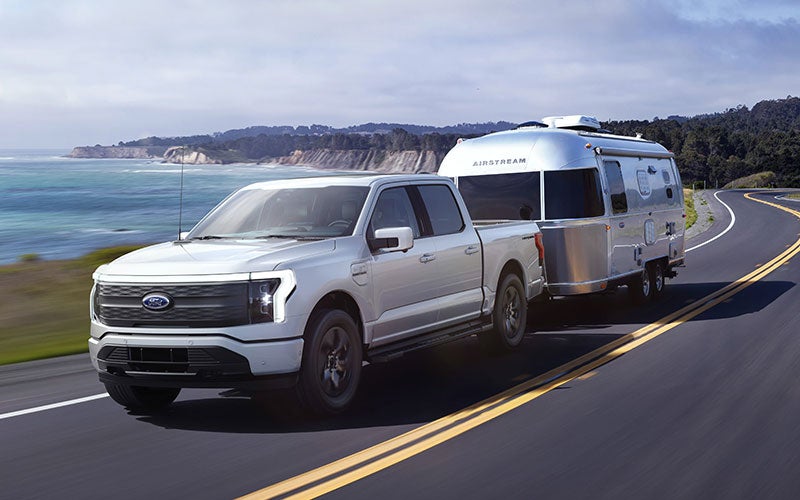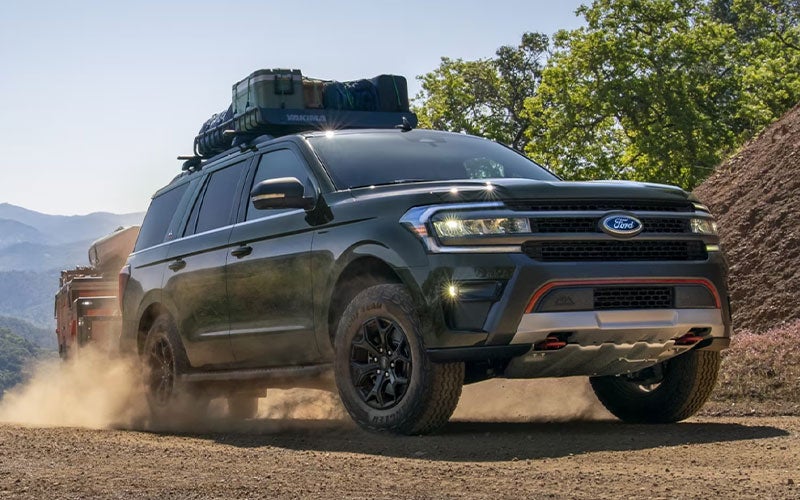Ford Trucks that Qualify for Section 179 Tax Benefits

Are you a business owner looking to add a new Ford vehicle to your fleet? Our team at Sarchione Ford Randolph wants to introduce you to Section 179 of the current IRS tax code. Qualifying vehicles that have a gross vehicle weight rating (GVWR) exceeding 6,000 pounds may be eligible for full depreciation during the first year of ownership when used solely for business purposes4. This can significantly lower your tax liability and save your business thousands of dollars. Below, you’ll find additional information related to Section 179 along with a list of which Ford trucks qualify for Section 179. Let’s get started!

Section 179 Deduction Explained
» REMINDER: If you have any questions, be sure to contact your tax professional for exact recommendations and rules related to Section 179 and vehicle eligibility. «
Section 179 of the IRS tax code allows businesses to deduct the price of qualifying equipment, such as vehicles, purchased or financed during the tax year. This incentive was introduced by the United States government to encourage businesses to buy equipment and invest in themselves.
Vehicles with a GVWR (gross vehicle weight rating) over 6,000 pounds, but not more than 14,000 pounds, allows for 100% depreciation in the current tax year, provided the vehicle is bought and put into service before January 1, 2023 and also meets other conditions:
- The vehicle can be either new or used; however, it must be purchased in an “arm’s-length” transaction that has been financed with qualified loans and leases and the title of the vehicle must be in the company’s name and not in the name of the company owner.
- At least 50% of the time, the vehicle should be used for business purposes and if the vehicle is not used completely for business purposes, 100% of the time, then there is a reduction of depreciation limits by the corresponding percentage of personal usage.
- You can claim the Section 179 deduction only in the tax year in which the vehicle has been put into service i.e. when the vehicle is ready and available, although you are not using the vehicle.
- Also, a vehicle that has been used for personal purposes first does not qualify for the Section 179 deduction if its purpose is changed to business use in a later year.
NOTE: Individual tax situations may vary. Please consult your tax advisor for complete details on rules applicable to your business.

Ford Trucks, SUVs, & Vans Eligible for Section 179 Deduction
The following Ford models currently may qualify for Section 179 deduction based on a gross vehicle weight rating (GVWR) exceeding 6,000 pounds. As always, if you have any questions, please consult your tax professional for exact rules regarding Section 179 and vehicle eligibility. Please note: model eligibility may vary based on trim level and equipment. The list is subject to change.
- Ford F-150 (6.5-foot or 8-foot bed, specific models)
- Ford F-150 Lightning
- Ford F-150 Raptor
- Ford F-250 Super Duty
- Ford F-350 Super Duty
- Ford F-450 Super Duty
- Ford F-550 Super Duty
- Ford Expedition / Expedition MAX
- Ford Transit Cargo Van
- Ford Transit Passenger Wagon
» As always, if you have questions, consult your tax professional for exact rules regarding Section 179 and vehicles. «
1 Individual tax situations may vary. The information presented was accurate at time of publishing. Federal rules and tax guidelines are subject to change. Consult your tax advisor for complete details on rules applicable to your business.
2 Comparisons based on Section 179 and 168(k) of the Internal Revenue Code, which allows for additional first year depreciation for eligible vehicles and reflects figures for owners who purchase vehicles for 100 percent business use and place vehicles in service by January 1, 2023.
3 Luxury car depreciation can continue year two at $18,000, year three at $10,800, and subsequent years at $6,460 until the vehicle is fully depreciated or sold.
4 With Gross Vehicle Weight Ratings (GVWR) of more than 6,000 pounds, these Ford models are classified as “heavy SUVs.” Gross Vehicle Weight Rating (GVWR) is the manufacturer’s rating of the vehicle’s maximum weight when fully loaded with people and cargo.
5 Comparisons based on Section 179 and 168(k) of the Internal Revenue Code, which allows for additional first year depreciation for eligible vehicles and reflects figures for owners who purchase vehicles for 100 percent business use and place vehicles in service by January 1, 2023.



